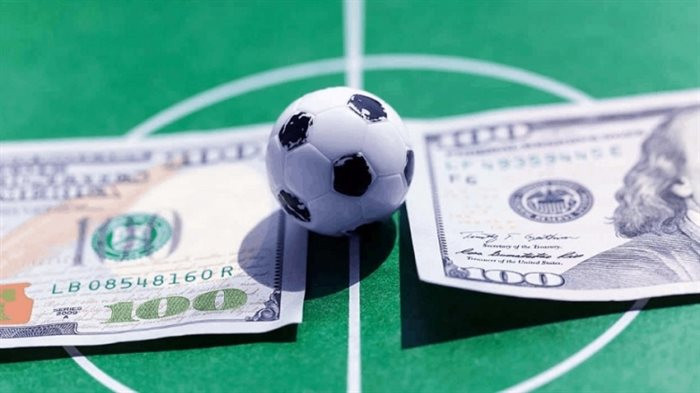How to Bet on Football Without Losing: 3+ Proven Methods
페이지 정보

본문
Football betting is exhilarating—but also risky. Everyone wants to win more than lose. While there is no guaranteed way to never lose, there are smart practices and strategies that significantly reduce risk and improve football prediction for today and tomorrow long-term success. Based on the 2024 guidance from Keonhacaitructuyen.org, here are more than three methods trusted bettors use to avoid losses and maintain consistent results.
Why “Not Losing” Is Different from “Always Winning”
First, it’s useful to clarify: “not losing” doesn’t mean you’ll win every single bet. Even top bettors have bad days. Rather, the goal is to limit losses, avoid big risks, and make your wins outweigh your losses over time. The strategies below aim at sustainability, helping you stay in the game in the long run.
Method 1: Pick the Strong Team (Favor the Favorites)
One of the core principles is to bet on the stronger team. This doesn’t mean always betting on the crowd favorite, or the team you support—but choosing teams that are objectively stronger in terms of form, squad, injuries, recent football prediction site performance, and head-to-head history.
Check recent form: Has the team been winning or performing well?
Analyze historical matches: How have they done against similar quality opposition?
Injuries / absences: Is the key player missing for the strong team, or for the opponent?
Home/away factor: Strong teams at home usually have a higher chance.
By consistently choosing the side that is more likely to dominate, you reduce risk. Whenever odds seem aligned with a strong side, it football prediction octopus often makes sense to lean that way.
Method 2: Avoid Very High Handicaps / Big Odds Disparity
Sometimes matches are not evenly matched, so bookmakers offer handicap bets where the stronger team must “overcome” a large goal difference (e.g. -2, -2.5). These big handicaps are tempting because they often come with attractive odds—but also with significant risk.
The advice:
If the handicap (goal-spread) is too large, it can work against you even if you're betting on the stronger side. A strong team might not be able to win by that margin.
In such cases, it might be safer to bet the underdog (or at least avoid choosing the heavy handicap). The underdog may lose the match, but if the handicap is large, you might still “win” or push (stake returned) depending on bet type.
In other words: distance matters. If the difference in expected performance is big, that often means the handicap will be harsh. Examine whether the stronger side's advantages truly justify the handicap.
Method 3: Know When to Pause / Walk Away
One skill many bettors underestimate is knowing when to stop. Betting while emotionally charged—especially after losses—can lead to poor decisions. Here’s what to do:
When you’ve lost several bets in a row (“touching bad luck”), don't try to immediately chase them. Dynamic losses can inflate risk.
Give yourself breaks: step away from the screen, do something else, get rest. A clear mind often leads to more rational judgments.
Reassess your strategy: sometimes losing streaks reveal flaws in decision-making, not just bad luck. Adjust accordingly.
Stopping at the right time is part of discipline. It protects your bankroll from spiraling losses and prevents rash bets.
Method 4: Use a Reliable, Trustworthy Bookmaker / Platform
Even with all the right judgment, if your bookmaker operates badly—unfair rules, delayed payouts, misleading odds—you’re still at risk. Thus:
Choose a credible bookmaker with good reputation.
Check transparency: does it clearly state payout policy, rules, odds calculation?
Look for user reviews or feedback from other bettors.
Make sure the site is regulated (if applicable) or has proof of fairness.
With a trustworthy platform, you reduce the chances of being unfairly treated or falling victim to hidden pitfalls.
Putting It All Together: How These Strategies Work in Practice
Here’s how a bettor might combine these methods in a match scenario:
Match: Team A (strong, good recent form) vs Team B (weaker, several injuries).
Bookmaker offers Team A with a -2.5 goal handicap. That’s heavy.
Strategy: Rather than taking that big handicap, you either:
a) Bet on Team A with a smaller handicap (e.g. -1 Or -1.5) if available.
b) Bet on Team B (or +handicap), because even if they lose by 2, you might get a partial push for higher safety.If you’ve lost 2-3 bets previously, decide to take a break before you place this bet. Reassess: check recent team performance, head-to-heads.
Ensure the bookmaker’s odds make sense and that the platform is legitimate.
By combining “bet on strong team”, “avoid too large handicaps”, “know when to pause”, and “use reliable bookmaker”, your bet is safer.

Additional Tips to Sharpen These Methods
Keep records: track your bets, results, which methods worked or failed. Over time, you’ll see trends.
Don’t over-bet: even “safe” bets have risks. Avoid staking too much on any single game.
Watch match previews and expert analysis: sometimes you’ll learn things like tactical changes, injuries, or lineup shifts that shift the strength perception.
Use proper bankroll management: decide ahead how much you’re willing to risk over a period (week, month). Stop if you hit that limit.
Conclusion
Betting without losing may sound impossible—but in practice, what you can do is minimize losses, make smarter bets, and stay disciplined. The four methods above—betting on the objectively strong side, avoiding overly large handicaps, taking breaks when things go badly, and using trustworthy bookmakers—are not foolproof prescriptions for always winning, but they do build a safer, more resilient approach to football betting.
If you implement these consistently, you’ll find you lose less often, make decisions more confidently, and gradually improve your odds of profitable betting in the long run.
- 다음글다음에 연락드리겠습니다. 25.09.14